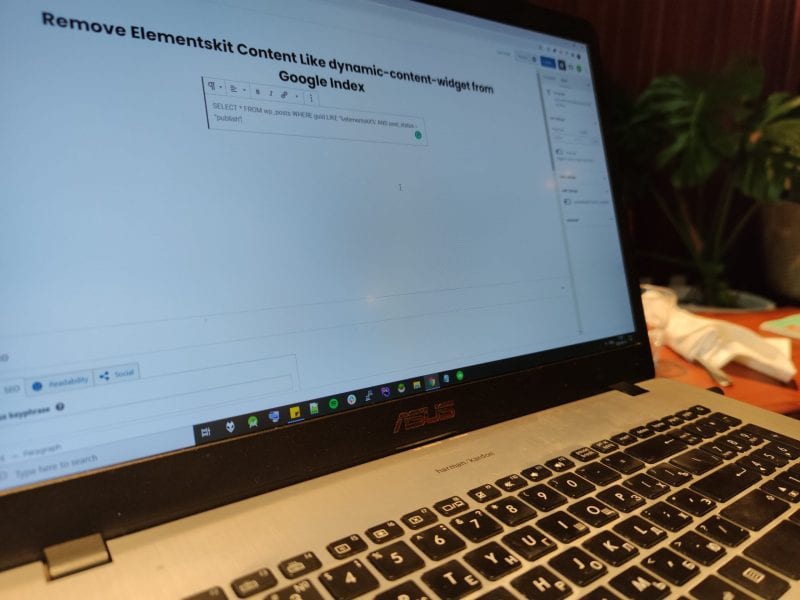
Are you a Node.js developer on the lookout for alternatives to Express.js? Whether you’re seeking scalability, developer-friendly features, or modularity in your backend development framework, this blog post has got you covered! Join us as we delve into popular Expressjs alternatives like Fastify, Koa, and Hapi, exploring how they can revolutionize your Nodejs development experience. Let’s dive in and uncover the exciting world of node.js frameworks beyond Express!
When considering alternatives to Express.js, scalability and performance should be at the top of your list. You want a framework that can handle increased traffic without compromising speed or efficiency.
Developer-friendly features are crucial for a seamless coding experience. Look for frameworks with intuitive APIs and robust documentation to streamline your development process.
Modularity and maintainability play a significant role in the longevity of your project. Opt for frameworks that promote code organization and easy maintenance, including features for efficient JSON parsing, to ensure scalability as your application grows.
Keep these key considerations in mind when exploring alternatives to Express.js, they will guide you towards finding the perfect framework that aligns with your development needs.

When considering alternatives to Expressjs for Node.js development, scalability and performance are crucial factors to keep in mind. Fast and efficient frameworks can make a significant difference in how your application handles increasing user loads.
Fastify, Koa, and Hapi are popular alternatives known for their ability to handle high levels of traffic while maintaining optimal performance. These frameworks offer lightweight solutions designed to boost the scalability of your backend systems.
Choosing a framework with developer-friendly features can streamline the process of optimizing performance. By prioritizing modularity and maintainability, you ensure that your codebase remains clean and scalable as your project grows.
By evaluating different Node.js frameworks based on their scalability and performance capabilities, you can select the one that best suits the needs of your project. Each alternative offers unique strengths that cater to various requirements in backend development.

When it comes to choosing an alternative to Expressjs for Nodejs development, considering developer-friendly features is crucial. These features can significantly impact the efficiency and ease of building lightweight applications.
Frameworks like Fastify, Koa, and Hapi offer a range of developer-friendly functionalities that cater to different coding styles and preferences. From streamlined syntax to intuitive APIs, these alternatives prioritize making the development process smoother for programmers.
Developer-friendly features encompass aspects such as comprehensive documentation, robust testing utilities, and community support. Having these resources readily available can help developers troubleshoot issues quickly and enhance their productivity.
Frameworks with built-in tools for debugging, logging, and monitoring contribute to a more seamless development experience. By prioritizing developer needs in terms of usability and functionality, alternative frameworks empower coders to focus on creating high-quality applications efficiently.

When considering alternatives to Express.js for Node.js development, one crucial aspect to evaluate is modularity and code maintainability.
Frameworks like Fastify, Koa, and Hapi offer modular structures that enable developers to break down their code into smaller, reusable components. This approach enhances code organization and makes it easier to maintain and scale applications over time.
By adopting a modular design strategy, developers can isolate specific functionalities within their projects, reducing dependencies between different parts of the application. This promotes better code reusability and facilitates collaboration among team members working on different modules simultaneously.
The emphasis on modularity in alternative frameworks contributes to improved maintainability by allowing developers to update or replace individual modules without affecting the entire application’s functionality. As a result, developers can make changes more efficiently while minimizing the risk of introducing bugs or errors in other parts of the codebase.

Looking for popular alternatives to Express.js? Consider Fastify, Koa, and Hapi. These frameworks offer unique features tailored to different developer preferences.
Fastify is known for its high-performance capabilities, making it an excellent choice for building scalable infrastructure. Open-source Koa, on the other hand, focuses on providing a more minimalist and lightweight framework that allows developers to have greater control over their codebase.
Hapi stands out with its emphasis on configuration-driven development and a robust plugin system. The framework’s high configurability allows developers to tailor the behavior of their applications precisely to their needs. Each of these alternatives brings a distinct approach to backend development, catering to diverse project requirements. The flexibility offered by Hapi’s configuration-driven approach empowers developers to customize various aspects of their applications, facilitating the creation of tailored solutions that align with specific use cases and project goals.
Exploring different frameworks can open up new possibilities and help you find the perfect fit for your next Node.js project.

Looking for a speedy alternative to Express.js? Fastify might just be the answer you’ve been seeking. This lightweight web framework is known for its unmatched performance and low overhead, making it ideal for building high-performance API development and web applications.
Fastify’s developer-friendly features like schema-based validation, input validation system, logging utilities, and automatic serialization help streamline the development process.Its modular MVC architecture allows for easy customization and scalability as your project grows.
With built-in support for async/await, efficient middleware functions in Fastify are more efficient and easier to implement. Error handling is also a breeze with customizable error reporting, error messages and centralized error user management.
Streamlined approach to middleware consumption contributes to a more straightforward and organized development process, allowing developers to focus on building robust applications and feature-rich applications.
If you’re looking to boost your backend development workflow with a fast performance, feature-rich framework, give Fastify a try – you won’t be disappointed!

Looking for a sleek and lightweight alternative to Expressjs for your Nodejs development projects? Enter Koa. This modern web framework is known for its minimalistic approach, allowing developers to have more control over their code without unnecessary bloat.
Koa’s use of async functions as middleware makes handling asynchronous programming a breeze, enhancing the overall performance of your universal applications. With its elegant syntax, strong focus on modularity, and support for clean routing, Koa enables developers to create and maintain clean and organized codebases effortlessly. Clean routing ensures that the navigation and flow of requests within the application are structured in a way that enhances readability and simplicity, contributing to the overall maintainability and efficiency of the testable code.
Developers who appreciate flexibility will find Koa’s customizable features like error-handling middleware and routing functionalities quite appealing. Plus, its robust ecosystem of plugins, including those designed for enhancing communication services such as messaging and video streaming, provides additional support for various development needs. This versatility makes it a valuable tool for developers looking to integrate and optimize communication features within their applications, benefiting from the extensive capabilities offered by Verizon and its associated plugins.
Whether you’re building APIs or full-fledged web applications, Koa offers the versatility and scalability required to take your Nodejs projects to the next level with expressive APIs.

Looking for a robust alternative to Express.js for your Node js projects? Consider Hapi! Known for its rich plugin system and configuration-centric approach, Hapi offers developers a flexible and scalable backend framework to build web app.
With its emphasis on modularity and maintainability, Hapi makes it easy to organize code division and handle complex routing tasks efficiently. Its built-in support for authentication & authorization features simplifies the implementation of secure defaults.
Hapi’s middleware architecture allows developers to create reusable components that can be easily integrated into different parts of the application logic. Error handling in Hapi is straightforward, ensuring that developers can catch and manage errors effectively.
Whether you’re working on a small project or a large-scale application, Hapi’s performance optimizations make it an excellent choice for backend development. Give Hapi a try and explore its developer-friendly features today!

When exploring alternatives to Express.js for backend development, it’s essential to consider how these frameworks impact the overall workflow.
Middleware functions play a crucial role in handling requests and responses efficiently, ensuring smooth data flow within the application, especially in data-intensive applications. Different frameworks may offer variations in how middleware is implemented, affecting performance and flexibility. Integrating payment processing services like Paystack, collaborating with development agencies such as Paralect, optimizing websites like Shimo Website, incorporating expertise from companies like Brainhub, leveraging content discovery platforms like Taboola, ensuring robust e-commerce solutions as seen in Walmart, or implementing energy-efficient solutions as in Bulb can significantly influence the choice and customization of middleware functions in frameworks like Expressjs. Each middleware component can be tailored to accommodate the specific needs of these services and organizations, allowing for seamless communication and interaction within the application.
Error handling availability is another key aspect that can significantly impact backend development. Robust error handling mechanisms not only enhance user experience but also contribute to the overall stability of the application. Leveraging cloud services such as Amazon Web Services (AWS) can further enhance error handling capabilities by providing scalable logging, monitoring, and alerting solutions.
Plus, its robust ecosystem of plugins, including those designed for enhancing communication services such as messaging and video streaming, provides additional support for various development needs. This versatility makes it a valuable tool for developers looking to integrate and optimize communication features within their applications, benefiting from the extensive capabilities offered by Microsoft and its associated plugins.
Controller and routing functionalities vary among different Node.js frameworks, influencing how developers structure their applications and manage endpoints effectively. Each alternative brings its unique approach to handling routes and backing controllers seamlessly.
CRUD (Create, Read, Update, Delete) operations are fundamental to many web applications, and Express.js provides a flexible and efficient framework for implementing these operations. Below is a basic example of how CRUD operations can be handled using Expressjs.
Choosing an Expressjs alternative that aligns with your project requirements can streamline backend development processes, offering enhanced features tailored to specific needs while maintaining scalability and performance levels.

Middleware functions play a crucial role in Node.js development, serving as the bridge between the incoming request payload and the server response. They enable developers to execute code at different stages of the request-response cycle, such as logging, authentication, error handling, and more.
By utilizing middleware functions efficiently, developers can enhance the functionality and performance of their applications. These functions allow for modularizing code logic, making it easier to maintain and scale projects effectively.
One of the key benefits of lean middleware functions is that they promote reusability across different routes or endpoints within an application. This helps streamline development efforts and ensures consistency in how requests are handled throughout the application.
Middleware functions are a powerful tool in Nodejs development that empowers developers to customize and optimize their backend systems according to specific requirements. Integrating GitHub functionality with an Express.js application can enhance collaboration, version control, and deployment processes.

Error handling is a critical aspect of backend development that can make or break an application. When considering alternatives to Express.js, it’s essential to assess how well these frameworks handle errors. Fastify, Koa, and Hapi all provide robust error handling mechanisms to ensure smooth operation under various scenarios.
Fastify offers detailed error logging capabilities, allowing developers to pinpoint issues quickly and effectively. Koa provides middleware functions specifically designed for error management, streamlining the process of identifying and resolving issues in the codebase. Hapi takes a structured approach to error handling, making it easier for developers to manage exceptions and maintain code quality.
By evaluating the availability of error handling features in alternative frameworks like Fastify, Koa, and Hapi, developers can enhance the reliability and stability of their Nodejs applications while reducing potential downtime caused by unforeseen errors.

When it comes to controller and routing in Node.js development, choosing the right framework can greatly impact your project’s success. Express.js alternatives like Fastify, Koa, and Hapi offer unique approaches to handling controllers and routing.
Fastify’s emphasis on speed makes it a solid choice for efficient routing and controller management. With its lightweight design, Fastify allows for quick request processing without compromising performance.
Koa stands out with its middleware flow control model, providing developers more flexibility in defining routes and handling requests. Its minimalistic approach simplifies the process of creating well-structured controllers.
Hapi offers a robust plugin system that streamlines route configuration operations and controller setup. Its focus on configuration over code allows for easier management of complex routing structures. Route handlers, a key component of Hapi’s architecture, play a crucial role in defining the server-side logic that executes when a specific route is accessed.
Incorporating these alternatives into your backend development workflow can streamline how controllers interact with routes in your application. Choose wisely based on your project’s requirements to ensure smooth navigation through different endpoints within your web app ecosystem.

When it comes to exploring alternatives to Express.js for Node js development, there are several advantages that other frameworks bring to the table. One standout advantage is the robust support for Dependency Injection offered by many Node js frameworks beyond Express. This feature allows developers to easily manage dependencies and promote a more modular and maintainable codebase.
The seamless integration of TypeScript in these alternative frameworks provides enhanced type safety and improved developer experience. By leveraging TypeScript, developers can catch errors at compile time, leading to more reliable and scalable applications.
Express.js, being a JavaScript framework, benefits from the features and enhancements introduced in ECMAScript 2015 (ES6) and later specifications. Express.js itself doesn’t mandate the use of ES6 specifications, but developers often leverage these enhancements to write more concise, readable, and efficient code in their Express applications.
Many node.js frameworks offer built-in support for real-time applications, making them ideal choices for projects requiring live data updates or chat functionalities. This capability simplifies the implementation of WebSocket protocols and event-driven architectures.
Considering these advantages, including scalability, performance optimization, middleware support, and prototyping, can help developers make informed decisions when selecting a framework for Node.js tailored to their specific project requirements.

When considering alternatives to Express.js for Node.js development, one key factor to keep in mind is the level of Dependency Injection support offered by different frameworks. Another crucial aspect to evaluate is the framework’s model support. Minimalist design Dependency Injection is a design pattern that promotes loose coupling between components by injecting dependencies into a class from an external source.
Frameworks like NestJS and Hapi excel in providing robust Dependency Injection support, making it easier for developers to manage and inject dependencies throughout their applications seamlessly. This feature enhances code reusability, testability, and overall maintainability of the application architecture.
By leveraging Dependency Injection capabilities in these alternative frameworks, developers can write cleaner and more modular code while minimizing tight coupling between different parts of the application. This results in more flexible and scalable codebases that are easier to maintain over time.

TypeScript integration is a crucial aspect to consider when exploring alternatives to Express.js for Node.js development. This feature offers developers the ability to leverage static typing, enhancing code quality and catching potential errors during development. With TypeScript, developers can enjoy improved maintainability and scalability of their projects.
By using Node.js frameworks that support TypeScript like Fastify or Koa, developers can write cleaner and more structured code while benefiting from enhanced tooling capabilities such as type checking and intelligent autocompletion. This ensures better developer productivity and reduces the chances of runtime errors in applications.
Opting for a framework with seamless TypeScript integration, along with robust support for real-time functionalities, can streamline the development process. This combination not only facilitates the creation of clean and type-safe code but also empowers developers to implement real-time features effortlessly. Whether it’s integrating WebSocket communication or implementing live updates, the inclusion of real-time functionalities enhances the capabilities of the framework, making it well-suited for applications that require dynamic and instantaneous interactions.

Real-time applications require frameworks that can handle constant data updates and communication between the server and client in a seamless manner. When looking for alternatives to Express.js, it’s crucial to consider which frameworks offer robust support for building real-time features.
Frameworks like Fastify, Koa, and Hapi provide excellent solutions for real-time applications by offering efficient handling of WebSocket connections, event-driven architectures, and real-time data synchronization capabilities. These alternative frameworks empower developers to create interactive chat applications, live streaming platforms, or collaborative tools with ease.
Search Engine Optimization (SEO) is crucial for ensuring that your website or web app is discoverable and ranks well on search engine results pages. In Express.js, you can dynamically generate meta tags in your HTML templates to enhance Search Engine Optimization (SEO). While Single-Page Applications (SPAs) built with frameworks like React or Angular may face some challenges with traditional SEO, Express.js can be used to implement SEO best practices for server-rendered content. Here are some strategies for SEO optimization with Express.js:
sitemap.xml file to help search engines index your site efficiently. Include important URLs and update it regularly. Implement a robots.txt file to guide web crawlers on which pages to crawl or avoid.By leveraging the strengths of these Node.js alternatives, developers can ensure that their real-time applications are responsive, scalable, and reliable. Whether you’re building a gaming platform that requires instant updates or a messaging app with live notifications, choosing the right framework can make all the difference in delivering exceptional user experiences in real time.

Express.js alternatives cater to a variety of developer needs by offering diverse features and functionalities. For developers looking for full-stack development capabilities, frameworks like Fastify and Koa provide a robust solution with built-in support for frontend framework technologies.
In terms of ORM integration for database operations, Hapi stands out as an alternative that simplifies database integrations through seamless integration with popular ORMs. When it comes to authentication and authorization features, Node js frameworks like NestJS offer extensive libraries and plugins to streamline the implementation process.
These alternatives also focus on enhancing the developer experience by providing efficient error handling mechanisms and support for microservices architecture. By addressing different aspects of web app development, such as flexibility, scalability, and ease of use, express.js alternatives empower developers to choose a framework that aligns with their specific project requirements.
The availability of database adapters within these alternatives allows developers to seamlessly integrate and interact with various databases, enhancing the versatility and compatibility of the chosen framework with different data storage solutions. This integration enhances the versatility and compatibility of the chosen framework with different data storage solutions, providing developers with the flexibility to work with a wide range of databases based on their project requirements.
It incorporates robust data validation mechanisms, ensuring the integrity and security of the data exchanged between the framework and the selected storage solutions.These universal data tools contribute to a more efficient and adaptable development process, facilitating smooth data management and manipulation within the chosen framework.
When considering alternatives to Express.js for Node.js development, it’s essential to explore frameworks that offer robust full-stack solution. Frameworks like Fastify, Koa, and Hapi provide developers with the tools needed to build both frontend compatibility and backend components seamlessly.
These alternative frameworks empower developers to create dynamic web applications by offering features for client-side technologies compatibility and server-side scripting. With built-in support for handling HTTP requests, routing, Server-side rendering (SSR), and middleware functions, developers can efficiently manage all aspects of a project within a single framework.
Server configuration in the context of Express.js refers to the setup and customization of the Express server to meet the specific needs of your application. This typically involves defining routes, middleware, and other settings.
Reducing the size of an Express.js application involves several strategies to minimize the overall footprint of the application. Here are some tips to help you achieve app size reduction:
By leveraging full-stack development capabilities in alternative Node.js frameworks, developers can streamline their workflow and maintain code consistency across the entire application stack. This approach ensures better scalability and modularity while enhancing the overall performance of web applications.
Whether you’re building a simple website or a complex web app, opting for Node.js frameworks with strong full-stack development capabilities can significantly impact your project’s success.

When it comes to ORM integration for database operations in Node.js development, choosing the right framework can make a significant difference. With alternatives to Express.js like Fastify, Koa, and Hapi offering robust support for ORM libraries, developers have more flexibility in managing database interactions efficiently.
Incorporating client-side integration seamlessly extends the capabilities of these frameworks, enabling developers to handle database operations directly on the client side for improved performance and responsiveness.
ORM integration simplifies data handling by allowing developers to work with objects instead of raw SQL queries. This abstraction layer enhances code readability and maintainability while reducing potential errors in database operations.
Frameworks like NestJS and Hapi provide seamless integration with popular ORMs like TypeORM and Sequelize, streamlining the process of mapping object-oriented models to relational databases effortlessly. This compatibility ensures that developers can focus on building scalable applications without getting bogged down by intricate database configurations.
By leveraging ORM capabilities within Node.js frameworks other than Express.js, developers can enhance their productivity and streamline database operations effectively. The ability to interact with databases through intuitive Object-relational mapping (ORM) significantly accelerates backend development workflows.

When it comes to developing secure web applications, having robust authentication and authorization features is paramount. Node.js frameworks like Fastify, Koa, and Hapi offer a variety of options to implement these crucial functionalities seamlessly. Choosing an enterprise-level framework can further enhance your development process by providing additional features such as scalability, extensibility, and comprehensive support for building large-scale applications.
Authentication mechanisms such as JWT tokens, OAuth integration, and session management are commonly supported by these alternatives to Express.js. This ensures that only authorized users can access specific resources within the application.
REST APIs (Application Programming Interfaces) adhere to the principles of REST, emphasizing stateless communication, resource-based architecture, and a uniform and standardized set of operations (HTTP methods). The definition and interaction with resources are often facilitated through well-defined HTTP paths, allowing developers to access and manipulate specific entities or data points within the application.
Cross-Origin Resource Sharing (CORS) is a security feature implemented by web browsers to control and restrict web page scripts, including script formatting, from making requests to a different domain than the one that served the web page. In the context of Express.js, you can handle CORS by using the cors middleware.
Implementing robust Denial of Service (DoS) protection measures is essential to mitigate the risk of service disruption caused by malicious attempts to overwhelm your server with excessive traffic or resource-intensive requests.
“Package management” is another crucial component provided by these frameworks. Developers can utilize package management to efficiently handle and organize external libraries and dependencies within their projects. This ensures that the right versions of software packages are installed, updated, and maintained seamlessly, contributing to the overall stability and reliability of the development environment. In addition to role-based access control and permission management, effective package management is instrumental in streamlining the development process and maintaining a well-organized and secure codebase.
By utilizing these authentication, authorization, and encrypted cookies features effectively in your backend development process, you can ensure that your web apps are safeguarded against unauthorized access or malicious activities. Cross-Site Scripting (XSS), a prevalent security vulnerability, is mitigated by implementing proper input validation, output encoding, and Content Security Policy (CSP) headers. Encrypted cookies add an extra layer of security by protecting the integrity and confidentiality of user session data, further enhancing the overall resilience of your application against potential security threats.

When it comes to robust ecosystems similar to Express.js, NestJS stands out as a top contender. This framework offers a powerful combination of scalability and modularity, making it ideal for complex Nodejs applications. With its built-in support for TypeScript and dependency injection, NestJS provides developers with the tools they need to create efficient and maintainable code.
Another noteworthy alternative is Hapi, known for its flexibility and extensive plugin system. Hapi’s emphasis on configuration over convention-over-configuration allows developers to tailor their applications according to specific requirements easily. Furthermore, Hapi’s rich ecosystem of plugin support and extensions enables seamless integration with various third-party services.
For those looking to maintain compatibility with existing Express middleware, Middleware Libraries offer a bridge between Express.js and other frameworks like Fastify or Koa. By leveraging these libraries, developers can combine the best features of multiple frameworks while preserving the familiarity of Express middleware functions.

Looking for a framework for Node.js that offers a robust ecosystem similar to Express.js? NestJS might just be the perfect fit for your next contemporary web development project. With its modular architecture and dependency injection support, NestJS allows developers to build scalable and maintainable applications with ease.
One of the key advantages of using NestJS is its seamless integration with TypeScript, providing strong typing and enhanced developer experience. This makes it easier to catch errors early in the development process and write more reliable code.
NestJS supports real-time applications through WebSocket integration, making it ideal for building interactive features like chat functionalities or live updates. Its built-in features like template engines also simplify the process of universal rendering dynamic content on the server side.
Whether you’re looking to streamline backend development or enhance your full-stack capabilities, NestJS offers a versatile solution that caters to different developer needs.

Looking for a robust alternative to Express.js? Consider Hapi, a powerful Node.js framework that prioritizes configuration over code and configuration time reduction. With its focus on configuration-driven development, Hapi offers developers the flexibility to customize their applications efficiently.
Hapi is known for its plugin system, allowing developers to easily add features and functionality as needed without cluttering the core codebase. This modularity enhances maintainability and scalability in large projects.
Developers appreciate Hapi’s built-in support for authentication schemes, validation processes, and error handling mechanisms. These features streamline backend development tasks and ensure a smooth user experience.
If you’re looking for a versatile Node.js framework with an active community and extensive documentation, Hapi could be the perfect choice for your next project.

Looking to maintain compatibility with Express while exploring alternative frameworks? Middleware libraries can bridge the gap seamlessly. These libraries ensure a smooth transition by providing familiar middleware functions and plugins that work across different Node js frameworks.
By leveraging these middleware libraries, developers can easily integrate existing Express middleware into their new framework of choice. This simplifies the data migration process and reduces the need for extensive rewrites or restructuring of code.
These libraries often come with comprehensive documentation and community support, making it easier for developers to troubleshoot any compatibility issues that may arise during the transition period. Additionally, they offer flexibility in customizing middleware functionality based on specific project requirements.
Opting for middleware libraries designed for Express compatibility can streamline development efforts and enhance the overall developer experience when switching between Node.js frameworks. It is crucial to address security concerns such as Cross-Site Request Forgery (CSRF) during the development process.
Implementing anti-CSRF tokens, validating user actions, and employing secure coding practices help fortify your application against CSRF attacks, ensuring that malicious actors cannot forge unauthorized requests on behalf of authenticated users. By combining middleware solutions for Express compatibility with robust security measures, you create a more resilient and secure foundation for your web applications.

When it comes to enhancing the experience of building web applications, exploring alternatives to Express.js can offer a fresh perspective. These frameworks provide developers with different tools and approaches that cater to various project requirements and preferences.
Express.js alternatives often come with built-in features like template modules, making it easier for developers to create dynamic content for their web applications. Efficient error handling mechanisms ensure smoother debugging processes, helping maintain the application’s reliability and performance.
Support for microservices architecture in these alternative frameworks allows developers to modularize their codebase, enabling scalability and flexibility in managing complex systems efficiently. By leveraging these features, developers can streamline the development process and build robust web applications tailored to specific needs.

When exploring alternatives to Express.js for Node.js development, considering built-in features like template engines is crucial. These tools allow developers to create dynamic web pages easily by merging templates with data.
Template engines streamline the process of generating HTML content, enhancing code readability and maintainability. Developers can separate design from logic, making it easier to update and customize the frontend without impacting backend functionality.
Popular frameworks like Fastify, Koa, and Hapi offer support for various template engines such as Handlebars, EJS, or Pug. This flexibility allows developers to choose the template engine that best fits their project requirements and coding preferences.
Single-Page Applications (SPAs) can be implemented using Express.js along with a front-end JavaScript framework like React, Angular, or Vue.js. SPAs provide a more seamless and interactive user experience by loading the entire application in a single HTML page and dynamically updating content as users navigate without full page reloads.
By leveraging built-in features like template engines in alternative Node.js frameworks, developers can efficiently build interactive web applications with rich user interfaces while maintaining a clean and organized codebase.

When it comes to building web applications, efficient error handling mechanisms play a crucial role in ensuring seamless user experience. Express.js alternatives like Fastify and Koa offer robust error handling features that help developers identify and address issues promptly.
By providing detailed error messages and stack traces, these frameworks make debugging easier and more efficient. Developers can track down errors quickly, leading to faster resolution of issues and improved application reliability. Implementing 2FA (Two-Factor Authentication) in an Express.js application involves adding an extra layer of data security to the authentication process.
With the ability to customize error responses based on specific use cases, developers have greater control over how errors are communicated to users. This flexibility allows for a more tailored approach to handling different types of errors across the application.
Some alternative frameworks offer built-in middleware for centralized error handling, streamlining the process of managing exceptions throughout the codebase. This helps maintain code consistency and simplifies maintenance tasks in the long run.

In today’s fast-paced digital landscape, the choice of a Node.js framework plays a crucial role in the success of your backend development projects. While Express.js has long been a popular option, exploring alternatives like Fastify, Koa, and Hapi can offer unique advantages such as enhanced scalability, developer-friendly features, and robust ecosystem support.
By considering key factors like modularity, performance, and maintainability when evaluating express.js alternatives, developers can tailor their choice to best suit their project requirements. Whether it’s seamless middleware functions or comprehensive error handling capabilities, each framework brings its own set of benefits to the table.
With advancements in technology driving the need for more efficient web applications, choosing a Node.js alternative that aligns with your specific needs is essential. From full-stack development capabilities to ORM integration for database operations and authentication features – there is no shortage of options available to cater to diverse developer requirements.
Frameworks like NestJS and Hapi not only provide extensive support for microservices architecture but also offer innovative features like built-in template engines and efficient error handling mechanisms. This ensures that developers have all the tools they need to streamline their web application development process effectively.
Exploring express.js alternatives opens up new possibilities for backend development by offering unique features tailored to different project requirements. By leveraging frameworks that prioritize scalability, modularity, and efficiency, developers can elevate their coding experience and build high-performance web applications that meet modern industry standards. Whether you’re looking for dependency injection support, TypeScript integration, or real-time application compatibility – Node.js frameworks other than Express bring a fresh perspective to backend development and empower developers to create robust solutions in an ever-evolving tech landscape. So why limit yourself? Take a step beyond Express and unlock endless opportunities for innovation in your next Node.js project!


Specialist in the IT industry with a reputation for excellence and innovation. Known for contributing to numerous successful projects and initiatives.

Custom eCommerce development starts with your needs. No matter what size your business is, crafting killer websites or robust applications with Nomadic Soft is a winning strategy. Our development team will always use the latest tech tools to build your business interactive and engaging web interfaces and applications.